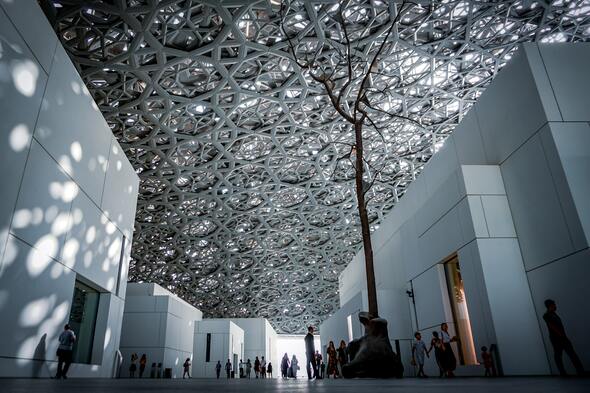Countries that have grown wealthy on the back of oil and gas revenues are investing huge sums to reinvent themselves as tourist destinations, with marquee projects such as Abu Dhabi's Louvre gallery, said to have cost a staggering £1 billion. Dubai's cruise passenger numbers doubled between 2013 and 2018, and Abu Dhabi has experienced similar growth.

Qatar opened a new cruise terminal at the port of Doha in 2019, and has chartered two MSC ships to provide fan accommodation during the World Cup. Plans have also been announced for a series of expedition cruises in conjunction with Ponant to focus on Qatar's whale sharks.
Earlier this year we saw the launch of Cruise Saudi, part of the kingdom's drive to diversify away from the oil sector. The aim is for the nascent Saudi tourism industry to contribute 10% of GDP by 2030, with ports including Jeddah, Dammam and Yanbu undergoing major redevelopment. The prolonged pause in global cruise operations during the pandemic provided an opportunity for cruise lines to use Saudi Arabia as a testing ground, with Silversea's Silver Wind chartered for the Saudi domestic market in 2020 and Scenic Eclipse based there in 2021 (see Helen's report on our Mundy Adventures website).

Inevitably the idea of Saudi Arabia as a holiday destination will meet with some resistance. The debate over the ethics of travelling to countries with unsavoury governments is one we are familiar with, having often discussed it in relation to Myanmar, and we could easily devote a whole article to the arguments for and against. What is clear in these straitened pandemic times, however, is that money talks, and a number of cruise lines have been attracted by the promise of significant investment.
While early reports suggest that tourist infrastructure, and indeed an understanding of what tourists want, are still somewhat lacking, Saudi Arabia is clearly a destination with potential. The west of the country, a region historically known as the Hejaz, is home to the holy cities of Mecca and Medina. Although Mecca is off-limits to non-Muslims, the cosmopolitan port of Jeddah is the gateway for pilgrims making the Hajj, and features heavily in plans to bring cruise tourism to the Red Sea coast. The other key port is Al Wajh, gateway to Al-'Ula and the ancient Nabataean city of Hegra, Saudi Arabia's first UNESCO World Heritage Site. Hegra was only opened to tourists in 2020, and the rock-hewn tombs are reminiscent of its more famous sister city, Petra, a few hundred miles to the north in Jordan.

Emerald's new yacht Emerald Azzurra will call at several Saudi ports in 2023, while Oceania's Riviera visits Jeddah in 2023, followed by Regent's Seven Seas Navigator in 2024. But the luxury line embracing Saudi Arabia most enthusiastically is Silversea, with several calls on both the Red Sea and Gulf coasts in 2022, 2023 and 2024, including Silver Cloud's 131-day Grand Expedition voyage from the Antarctic to the Arctic via South Africa, the Indian Ocean and the Mediterranean.
The Grand Expedition features other eye-catching ports of call in the region, such as the tiny east African nation of Djibouti. There has always been trade and cultural interchange between the Horn of Africa and Arabia - indeed, there was a time when Ethiopian kings ruled parts of the Arabian Peninsula - and Djibouti is a melting pot of African, Arabian and European influences. Silver Cloud will also visit the Omani island of Masirah, a haven for marine turtles, and the archaeological site of Khor Rori in southern Oman, a key trading post on the frankincense route 2,000 years ago.








